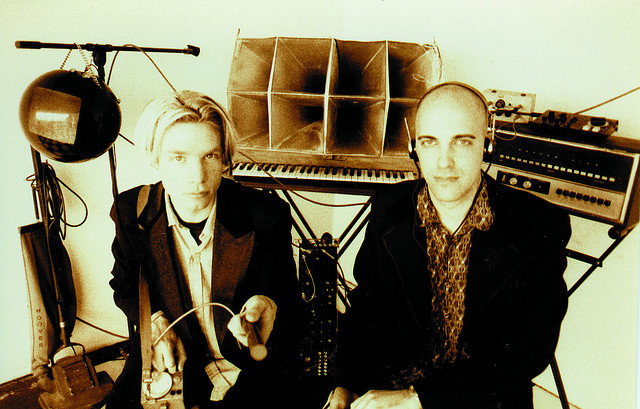Music
Underrated Classics: House of Wires

One thing that always seems to fascinate me is when bands with miles of pop potential, never amount to the success that’s presumably sought after. In a way it’s very sad, but in another light it keeps something that should have had the palpability for mass exposure in a sacred little box. When it comes to indie pop, that sort of believability is even harder to reach, but in a way immediacy is sometimes the last thing that an indie pop records wants. There seems to be an American standard in which independent releases that have stronger release histories, and maintain a low-key cult-following for quite awhile, eventually reach a point of “blowing-up.”
The internet is the perfect place for that sort of initiative, and one label that’s chock-full of brilliant yet low-key releases, is the internet’s very own indie pop label, Holiday Records. Holiday only did free releases for quite a few years, and one of its earliest and most brilliant from that time period was a random little three-song EP, entitled The Found Sessions by Californian synth-pop duo, House of Wires. House of Wires had previously released two very cheeky and over-produced synth-pop records in the late 90s on Joy Electric’s frontman Ronnie Martin’s label Plastiq Musiq. Despite a decent local-following for the band, neither album caught on. Ten years removed, House of Wires randomly resurfaced, releasing a free EP that keeps the duo’s synth-pop traditions, but surfs the edges closer to swedes The Radio Dept., Darklands-era Jesus and Mary Chain and plenty of 90s shoegaze influence.
The EP opens with the catchy and ethereal “Golden Days,” a layered and retro-futuristic jam that relatably sings “Don’t wanna die young/I don’t ever want to die young/not like you did.” The song has a cluster of random synth-noise and effects, and the singer wears a sophisti-pop croon over a wash of synthesized feedback. Next, we have the downtrodden, empty dancehall tune “Listen.” “Listen” has the cinematic feel of a Sea Change track, and has a similar layered and interesting production to the opener, in which the song portrays this amalgamation of several eras of electronic production in a short-amount of time. Lastly, the EP closes with the alien-like and distant “Interpersonal.” The song does indeed have an interpersonal feel that paints the picture of the song itself, feeling just as awkward and defiant as the songwriter. In the last minute and half, the song goes into a mighty coda, in which the singer belts “If I could get there first/if I could be there first/I wouldn’t have to feel.”
The Found Sessions has been a very puzzling release to me in the past couple of years. Firstly, because House of Wires have seemed to fallen completely off the grid since this release. Truly there is not very much information on the band’s history- current, future or past. Additionally, the most interesting thing I’ve been able to find out about them is that many websites label them as “Christian,” which is very interesting to me considering the depressing subject matter of nearly all of there releases, as well as their debut album’s cover of Pixies’ “Where Is My Mind?.” Lastly, it’s very odd that a once radio-friendly synth pop duo, who seemingly called it quits at the start of the millennium, randomly resurfaced with an interesting take on shoegaze, electronic and laptop-rock. The Found Sessions is quite a riveting release, and even if these sessions were “found” from previous years, it shows that the band was or has been working on very interesting stuff. The EP shows instances of music-homework that hardly any synth pop groups as of late do well. Whether or not the band is still together, what I would like to know is when I can hear more of these “found sessions” and how we can find out more about a band that seemed to transform into something (dare I say) unique. Hopefully this article will help shed some light on things, as well as create the opportunity for a proper release of several “found sessions” with just as much palpability.